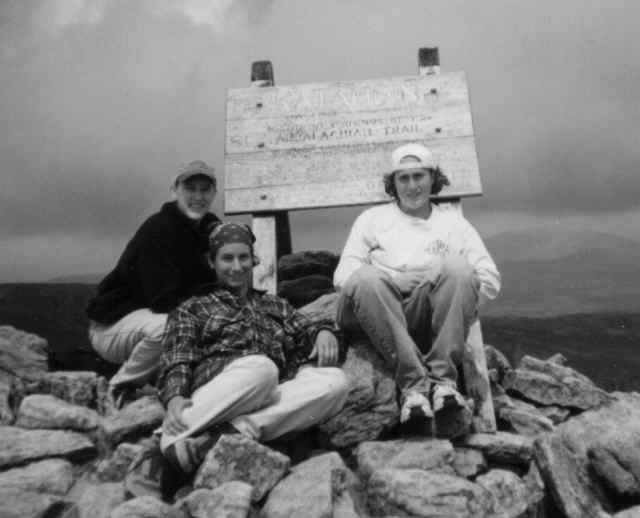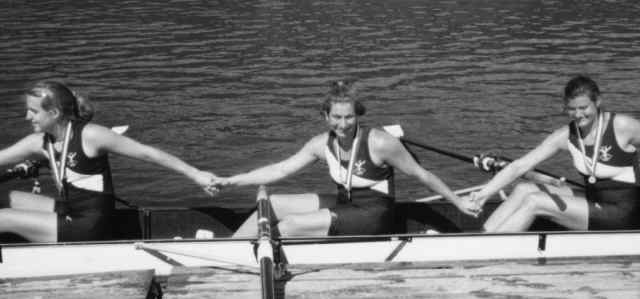 When My Life Hit the Rocks |
When my friends from Atlanta and I headed out for a weekend of backpacking in North Carolina, just two months after my graduation, we did not plan for the trip to end with three rescue squads air-lifting my unconscious body out of the Smoky Mountains.
Sunday afternoon when we emerged from the woods, the idea was to have a quick dip in the creek underneath the Graveyard Fields waterfall, get some dinner and head back to Atlanta in time for work Monday morning. I do not remember the events that changed those plans. I do not remember ever seeing the 40 feet of rocky rapids I slid down, blood streaming from a laceration to my head. I remember in a dreamlike sequence, seeing my feet hit a standing pool of water, stopping my momentum precipitously.
My friend Stephen, the outing organizer, hated being the one who had to place the call every parent most dreads to receive. As my parents hurried from our home in Atlanta that afternoon to join me at Mission St. Joseph’s Hospital in Asheville, they did not know how they would find me, whether I would ever again be the daughter they had known. The doctors grieved at the spectacle of a twenty-two-year-old with her whole life ahead of her facing brain damage, possible paralysis—with a terribly high probability of becoming “just another statistic.”
When I first awoke, for a very brief and slightly disoriented interview, I was told by my friends that I had fallen down a waterfall, and I thought they were lying. The hospital lights, swarm of nurses, and IV in my arm were enough to convince me, however, that I was in the hospital and not at home in my bed, as I had originally thought.
Lying somewhere between unconsciousness and delirium, I know I was not aware of much, but a few things registered with me. For one thing, unlike those around me, I was not concerned about whether I would live or die. I sensed—I virtually knew—that I would not only live, but return to life as normal, as if this event were just a blip in time.
But even before I felt sure I would live, I knew that I was safe. This assurance and safety was not a physical security, or even the emotional security of being surrounded by friends and family. It was a spiritual assurance. Whether the outcome of my accident was life or death was not at the forefront of my thoughts. Death did not loom over me as a dreadful end, because it had a sweet meaning for me: it meant going home to be with a God whom I both loved and knew. In fact, when I later knew that life would continue as before, I was momentarily sad that I had been that close to so great an opportunity, and missed it.
When I lay in that hospital bed, unable to think very clearly, I knew that it was not the time to be in doubt about what would happen if and when I died. Death was a very real possibility for me at that moment; everyone around me dreaded it, but I knew that my eternal destiny was sealed by a covenant made in Jesus’ blood. Years before, I had accepted Jesus’ sacrifice on the cross, so that I might stand before the Creator of heaven and earth, and He would see the righteousness of Jesus instead of my sin. I knew this was the ONLY way I could enter the presence of a Holy God, but I also knew that was the place where I wanted to be.
It does sadden me now to think of how many other people must reach the point I did, where the roads of life and death divide, and how they must fear, if they do not know what will happen if they die. If only they would take the opportunity freely offered them before that time, to let Jesus wash away their sin, so that they too might know that death means a voyage home to the arms of the God of love and mercy.
Are you ready to face death? Do you know where you are going? If not, do not wait until it comes upon you, but make a transaction with Jesus today, for He says: “I tell you the truth, whoever hears my word and believes Him who sent me has eternal life and will not be condemned; he has crossed over from death to life.” (John 5:24)

Believing Him will bring security and assurance, both for this life, and the life to come.
Elizabeth Ferguson, BR ’98
© 2001 The Yale Standard Committee

